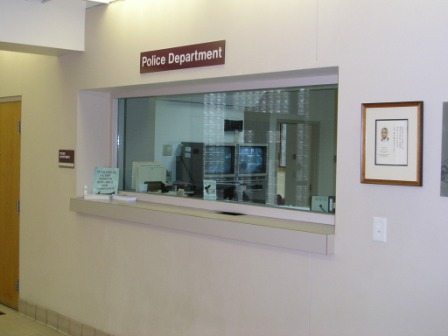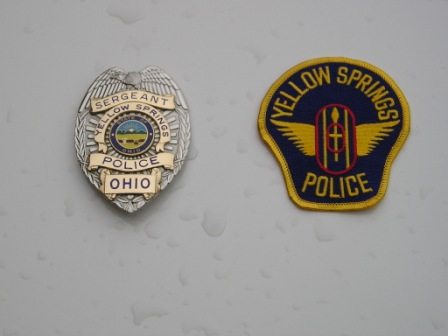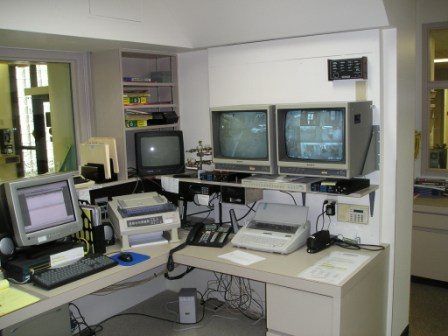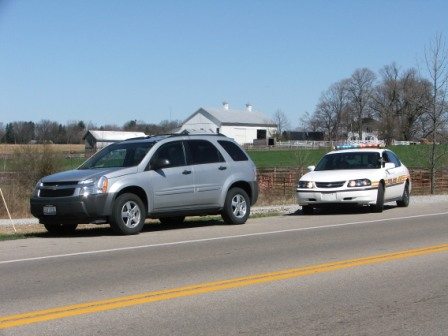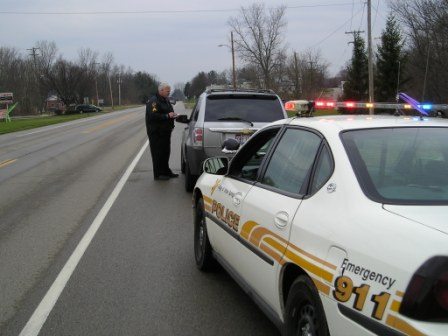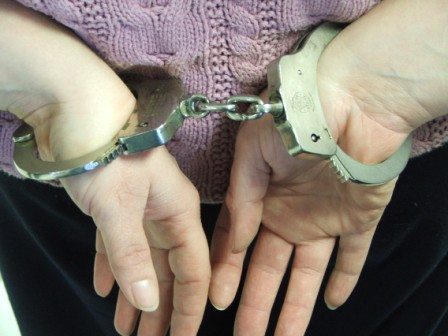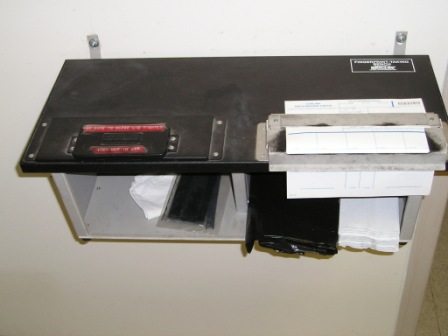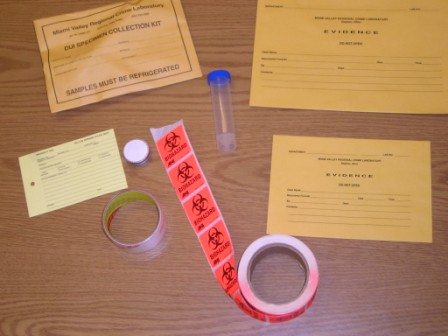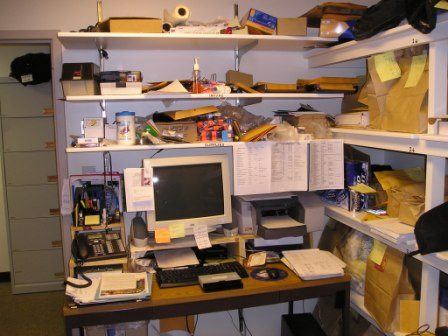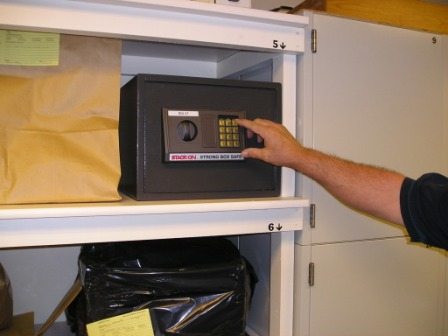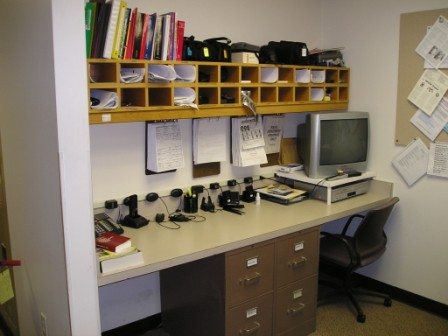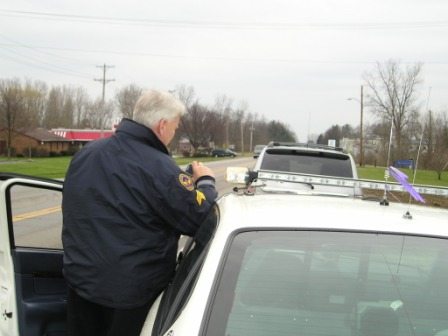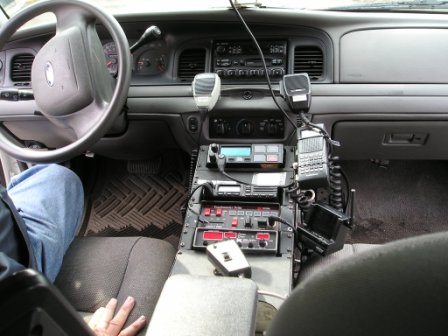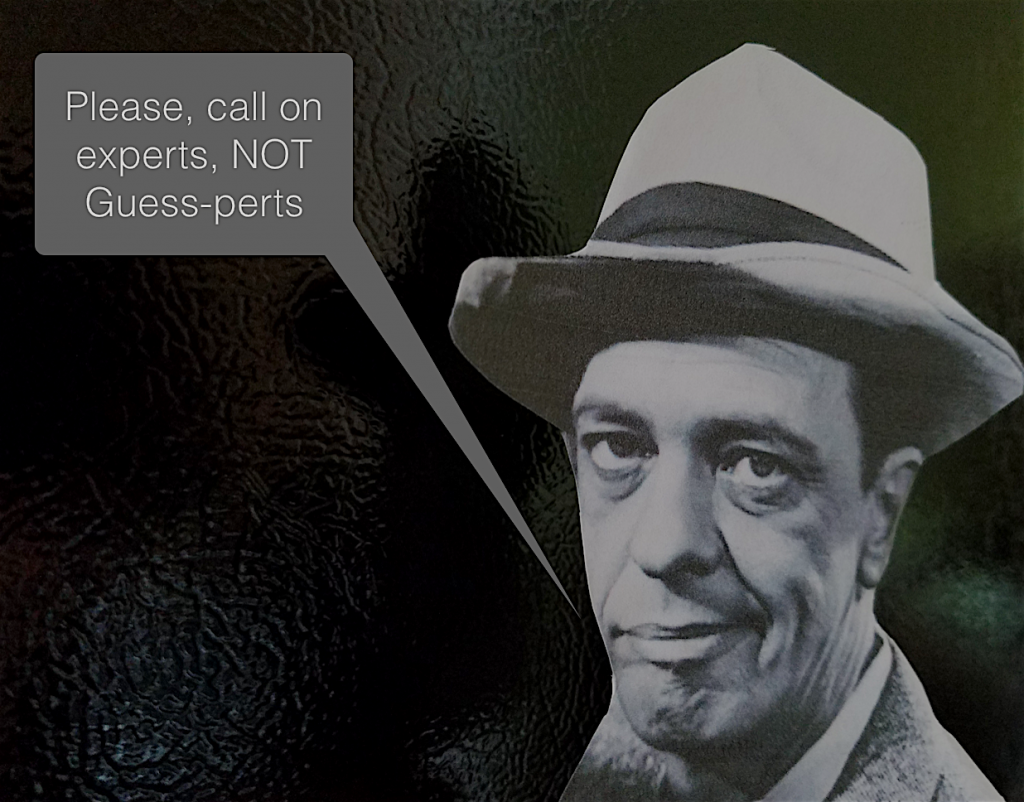What is Barney-Fife-itis, you ask? Well, lots of writers suffer from it, and it’s a horrible disease. Nasty, in fact.
The best way to describe it is to take you to a small town somewhere deep inside your imaginations, where this stuff lives and breeds like the black mold that hides beneath an HGTV fixer-upper bathroom vanity.
So lets go there, to that spot in your mind where …
Yes, it’s a small red-brick building nestled between Betty Lou’s Cut ‘n Curl and Smilin’ Bob’s Hardware and Pawn Shop. The lone parking space in front is reserved. A sign reads “Chief’s Parking Only.”
Inside, the hallway to the right takes you to the water department and the office of the building inspector. There, you can also purchase dog tags and yard sale permits.
A left turn leads to the town’s police department, a force comprised of five dedicated, hardworking police officers—one chief, one sergeant, two full-time officers, and one part-time guy who’s also the mayor of the next town over.
Complaints can be filed with the dispatcher at the window, or by dialing the local number. Calling 911 in Small Town works the same as calling 911 in New York City. Hmm … there is a tiny difference, though. When you call 911 in Small Town somebody always shows up to see what’s wrong. Not always so in Big City.
Small Town dispatchers also work the computer terminals, and they handle calls for animal control, fire and rescue, sometimes reports of needed street repair, stoplights that are out, and even severe weather reports . They know CPR and they know everyone in town and the quickest routes to their houses.
Officers in Small Town attend the police academy and they receive the same training and certifications as the officers over in Big City. No, Small Town PD doesn’t have all the latest fancy equipment with the shiny, spinning dials and winking, blinking lights. They don’t have special detectives who only work homicides or white collar crime. And they don’t have divisions dedicated for traffic, vice, narcotics, and internal affairs. Budgets simply don’t allow it.
Officers in Small Town are cross-trained. They each know how to run radar, direct traffic, dust for fingerprints, interview suspects and witnesses, and they know how to investigate a murder.
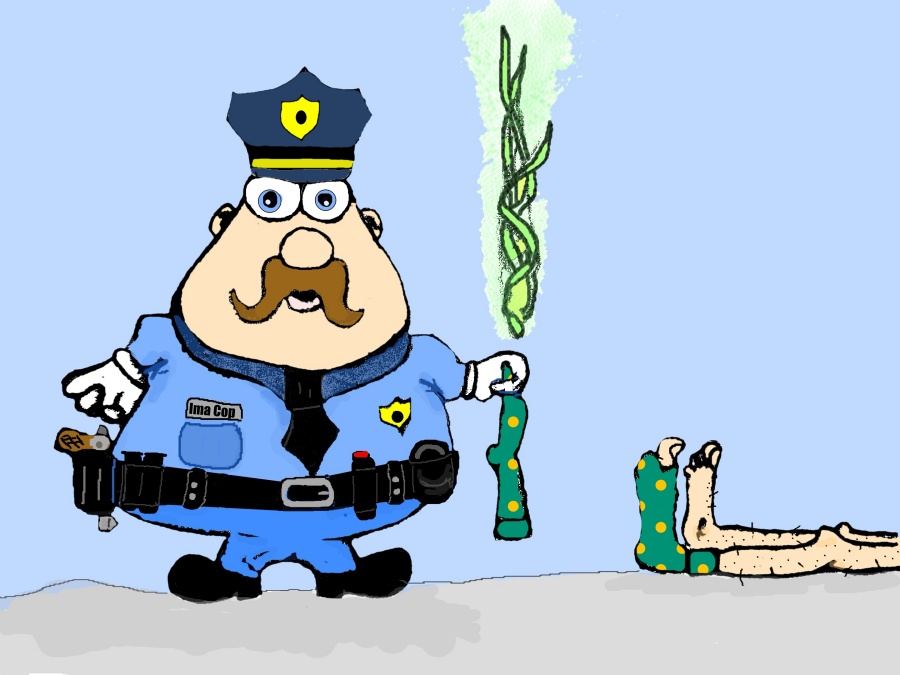
Small Town officers investigate burglaries and assaults. They also arrest drunk drivers, drug dealers, people who abuse their spouses, rapists, pedophiles, and robbers. They break up fights, help kids cross the street safely, and they locate lost pets. And, if one of their officers steps out of line they’ll straighten them out, too.
Of course, Small Town is totally fictional, but there are many actual small towns with small police departments, and those small departments work the same kinds of cases as the departments in larger cities. No, not all departments are large enough to have officers who serve as detectives. But they all employ police officers who are fully capable of investigating any type of crime, and they do, from traffic offenses to murder. Sure, they perform the same work as a detective, but they do it while wearing a uniform instead of some fancy-smancy suit.
Yep, most small departments operate the same way as the large ones, just on a smaller scale.
For example:
The Yellow Springs, Ohio Police Department serves a village of slightly less than 4,000 residents. Therefore, the department is small. However, there’s a college in town and the village is located near Dayton and Springfield, which translates into the potential for a higher crime rate than would normally be found in a town that size. And, the potential for more crime means more proactive police work for the small number of officers.
Several years ago, back during the time I was conducting research for my book o police procedure, the YSPD didn’t have plainclothes detectives to investigate major crimes. Instead, as is the case with many small departments, uniformed officers investigated all crimes. Therefore, when an officer received a call from the dispatcher they’d see it all the way through, from the 911 call through court, including evidence collection, interviewing witnesses, etc.
If the officers needed additional help, or resources, they called on the county sheriff’s office.
Remember, not all departments operate in the same manner. Some smaller departments DO have detectives, and those investigators may or may not wear a uniform. They could dress in a coat and tie, and they could have the title of detective, or investigator. If they’re a detective who wears a uniform their rank would normally remain the same. There is no standard rule. It’s entirely up to the individual department.
Remember—a police department and a sheriff’s office are not the same. Deputy sheriffs work for sheriffs, not police chiefs. But that’s a topic for another day.
Since the topic today is “small town departments” and the officers who work there … well, hold on to your hats because I’m about to make an earth shattering announcement! Ready?
Here goes.
Sure you’re ready? Are you sitting down? Have your nervous medicine in hand? Your doctor on speed dial?
Yes to all of the above? Okay, then. Here it is, and I’m holding nothing back. Not this time.
(One second. I’m taking a deep breath)
Okay, here’s the news …
Small town cops are the same as cops in big cities!
Yes, they are. I’ve said it and the secret is OUT!
They receive the same training. They do the same jobs. They go through similar hiring procedures. They enforce the same or similar laws. They use the same or similar equipment. And, well, to write them all as inferior, stupid, ignorant, incompetent, etc. is not only absolutely and unequivocally wrong, it’s extremely offensive.
I’ve often wondered why some people assume that people who have little are to be considered inferior, or less intelligent when compared to those who have a lot. This is also true when considering law enforcement agencies. Those with the shiniest and best equipment are often seen as employing officers who are smarter than their peers who work for small town departments with meager budgets. Of course, this unfair stereotyping occurs throughout most walks of life.
Try breaking it down in this way:
- Small Town, a town of 4,000 residents, employs five police officers. Those five officers provide police protection and coverage for those 4,000 citizens.
- Big City, a city of 100,000 employs 125 officers.
- Break down the number from Big City into three shifts (day, night, and rotating for the off hours of the other shifts) and you wind up with just over 40 officers per shift.
- Now, since Big City covers a much larger land area than Small Town, officials divided Big City into 8 precincts.
- Each of the eight precincts covers a land area the size of Small Town.
- Each precinct employs … wait for it … FIVE officers. Just like Small Town!
- Some of those precincts have 4,000 residents, or more, including the extremely high-crime areas. Therefore, these precincts of 4,000 residents are covered by five police officers, which is the same scenario that plays out in every small town and city across the country.
- Many small town police officers attend the same police academies as their peers in larger cities. In fact, they’re often classmates in the same academy. And, their instructors are the same, their desks are the same, and the equipment used is identical.
Anyway, budget, land area, and location are the major differences. Not intelligence or training.
*The above scenario is fictional. I merely used it to illustrate the point. It is, however, a loosely accurate portrayal.
Let’s continue to explore our small town department.
YSPD dispatcher.
NCIC and other equipment.
Above – Felony traffic stop in a small town. The procedure is the same in both large and small departments.
Issuing a traffic summons in a small town is no different, other than surroundings, than the same situation in a larger jurisdiction.
An arrest is the same no matter where it takes place. Tactics and techniques are identical. So is training and equipment. Even the handcuffs used are the same in both Big City and Small Town. Imagine that!
Small departments may not have the latest, modern equipment, such as LiveScan fingerprint terminals. Instead, they still use the old ink and ten-print cards. Both produce the same results—fingerprints.
Ten-print fingerprinting station.
Small departments collect and preserve evidence using the same methods and materials as do larger departments.
Evidence storage is the same, but is on a smaller scale in smaller departments.
YSPD evidence room office/processing area.
Evidence safe in a small department (for narcotics, etc.).
YSPD officer’s workstation/office.
Small departments follow the same procedures as any other department. The job is identical to that of a big city officer, just in a different location.
Interior of a YSPD patrol car. Some cars feature mobile data terminals (computers), and some don’t.
Check with Experts, Not Guess-Perts
As always, please check with experts in the area where your story takes place. Those are the people who can best help with your research. Not someone who once read a book about how cops work in small towns. Obviously, to read incorrect information and then pass it along is, well, it’s wrong.
To do so would be no different than me reading a book on brain surgery and then telling you about so you can then operate on your readers and fans. Reading a book or asking your Uncle Percy who sister-in-law was once married to a guy whose cousin know a guy in elementary school who later married a woman whose father was a cop, well, that certainly does not make Uncle Percy a crackerjack law enforcement expert. It’s actual experience and training produces experts.
Otherwise, we still see “Guess-perts” (the folks with no real experience or training) telling authors to write small town cops as “Barney Fifes,” when that couldn’t be further from the truth. I know, there are “Barneys” in many departments (other professions as well), but they’re not exclusive to small towns. It’s just that they’re far more obvious when they’re one of only five officers citizens see every single day.
So, if you’re going for accuracy, the best advice for you, my writer friends, is to …
Writers’ Police Academy
The Writers’ Police Academy (WPA) offers actual hands-on police training. It is the ultimate research tool for writers.
The next event is scheduled to take place June 2-5, 2022, at NWTC’s renowned public safety academy in Green Bay, Wi. The 2022 event is so massive that it’s stretched between two cities—Green Bay and Appleton!
Details TBA.



